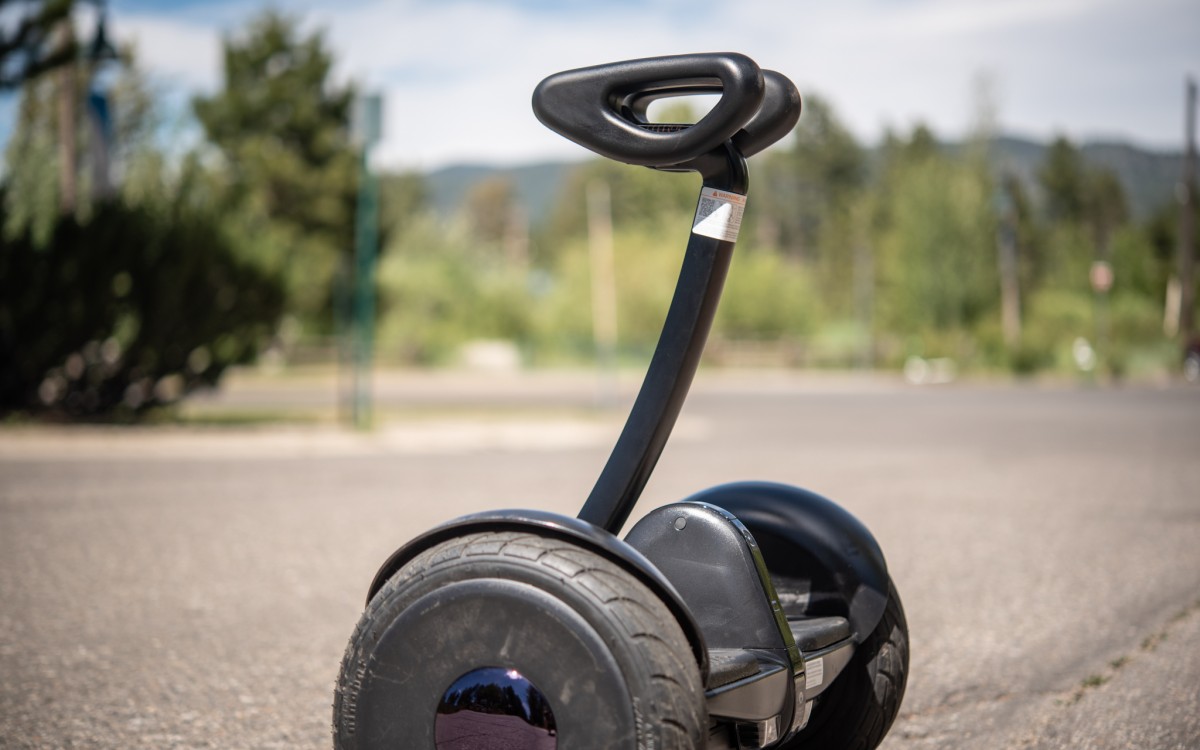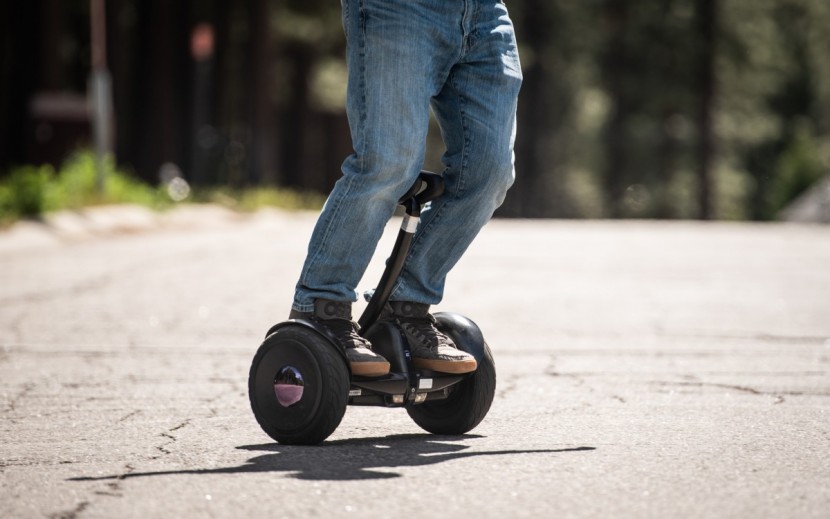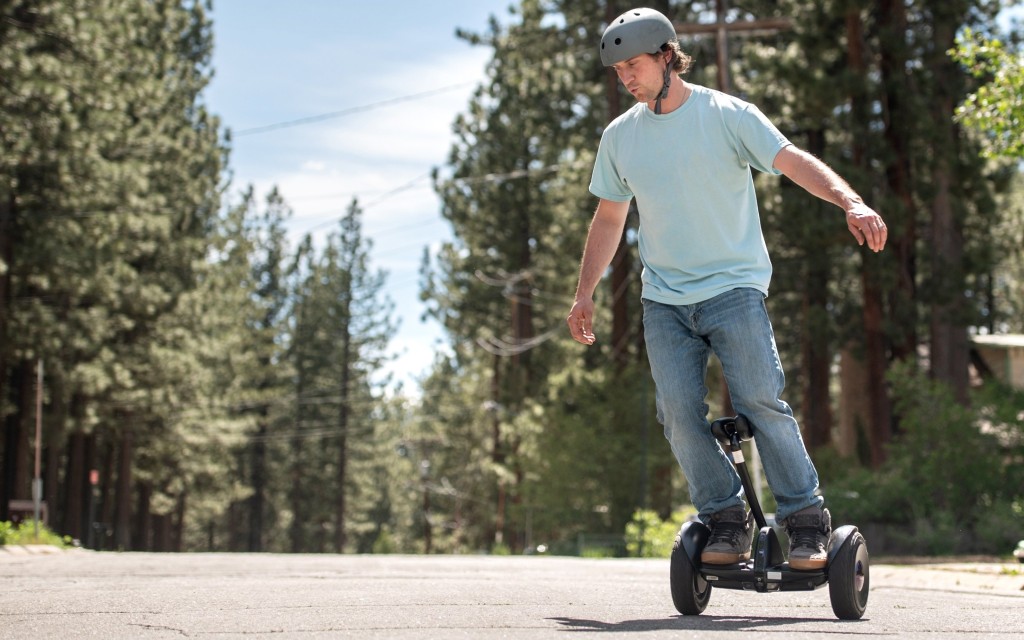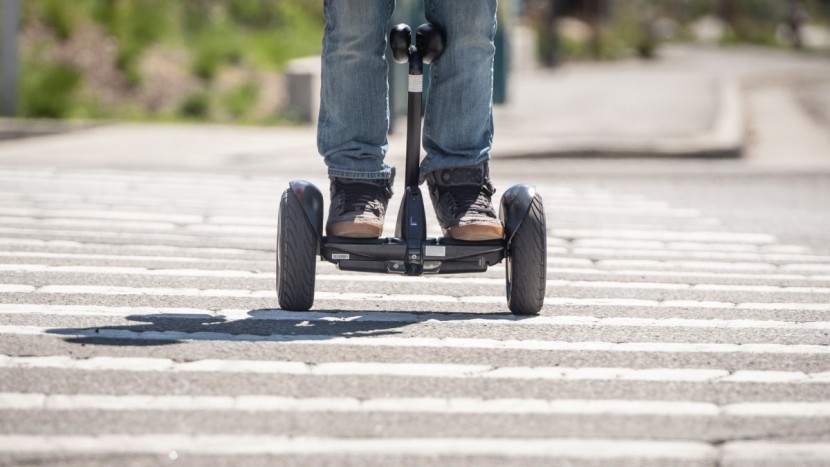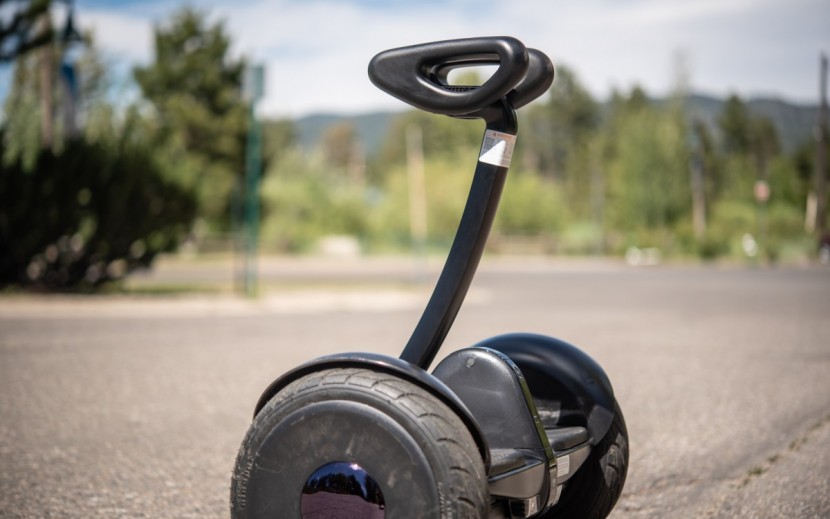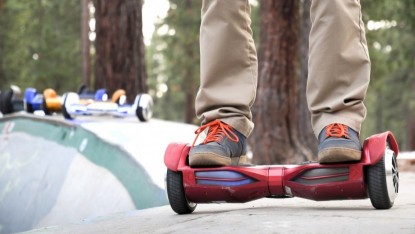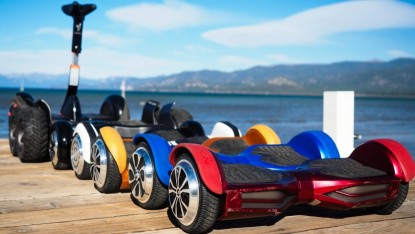Our Verdict
Compare to Similar Products
 This Product Segway Ninebot S | |||||
|---|---|---|---|---|---|
| Awards | Best for Commuting | Best Hoverboard For Most People | Best Value and Entry-Level Option | ||
| Price | $600 List | $230 List $173.88 at Amazon | $150 List | $180 List | $180 List $99.99 at Amazon |
Overall Score  |
|||||
| Star Rating | |||||
| Bottom Line | This commuter vehicle is a sleek workhorse that stands out for its all-terrain performance | This affordable board has comfortable foot pads and decent maneuverability but can't cut it off-road | Despite this board's so-so durability, its budget-friendly price and beginner-friendly ride will maintain appeal for certain riders | This board offers decent stability for new riders but lacks standout features such as Bluetooth connectivity | This board is fun to ride indoors, but its inconsistent performance on any outdoor terrain limits riding freedom |
| Rating Categories | Segway Ninebot S | Hover-1 Chrome 2.0 | XPRIT Classic | Swagtron Swagboard... | Hover-1 Helix |
| Fun Factor (50%) | |||||
| Outdoor Capabilities (20%) | |||||
| Support (20%) | |||||
| Battery (10%) | |||||
| Specifications | Segway Ninebot S | Hover-1 Chrome 2.0 | XPRIT Classic | Swagtron Swagboard... | Hover-1 Helix |
| Measured Run Time | 95 min | 107 min | 75 min | 37 min | 44 min |
| Measured Weight | 29.6 lbs | 15.2 Ibs | 13.1 Ibs | 14.7 Ibs | 13.1 Ibs |
| Measured Speed | 10.5 mph | 7 mph | 6.5 mph | 6.3 mph | 7.7 mph |
| Measured Range | 11.3 mi | 3.3 mi | 4.5 mi | 2.4 mi | 3.68 mi |
| Measured Charge Time | 2 hours, 40 min | 4.5 hours | 4 hours 41 minutes | 3+ hours (manufacturer says not to charge longer than this) | 6 hours |
| Weight Limit | 220 lbs | 220 Ibs | 165 lbs | 185 lbs | 160 lbs |
| Wheel Size | 10.5" | 6.5" | 6.5" | 6.5" | 6.5" |
| Bluetooth | Yes; app | Yes; app and music | Yes; music | No | Yes; app and music |
| Warranty | Vehicle body: 12 months Attachment parts: 6 months Components subject to wear: 3 months |
90 days | 90 days | 5 years (battery) 1 year (manufacturer) |
90 days |
Our Analysis and Test Results
Segway isn't shy about straying from the mainstream with their innovative designs in the electric vehicle market. The Ninebot S is no exception. The knee-driven steering column departs from the standard footpad pressure-driven device and is also self-balancing — meaning that it will remain upright without external input. While this product is quite fun to ride, we would not describe it as a toy. It has large 10.5" wheels with burley pneumatic tires that make it a boss on all terrain types. It has a long-lasting battery and two powerful electric motors. Our only complaints focus on the steering column. First off, the steering column isn't adjustable, which is problematic for taller riders. Moreover, when cruising at or near top speed, the platform tilts back, pointing the rider's toes up in the air. As if this position wasn't awkward enough, the steering column angles back behind the calves in this scenario, making it difficult to apply pressure for turning.
Fun Factor
In general, hoverboards are all about having fun. As a result, our fun metric accounts for half of the overall scoring of the products in this review. To hone in on what makes something fun, we looked at characteristics that, when realized, produce what we consider to be an entertaining, even smile-inducing, experience. These are negotiating a basic obstacle course, speed trials, weight (because carrying heavy things is NOT fun), color options, Bluetooth capability, and accessories such as interchangeable skins and bags.
While the Ninebot S is fast, stable, and relatively nimble, it suffered in the fun category because, at just under 30 pounds, it is on the heavier side for these products. Considering the weight, we were a little surprised that Segway removed the telescoping dolly handle that was present on a past iteration. By removing the telescoping handle, adjustability on the steering column was also sacrificed, and this caused some testers discomfort and at times resulted in a loss of control.
Further hurting this product's performance in this category is the lack of several little goodies that competitors have, such as onboard Bluetooth speakers and aftermarket skins. However, we do not think that these shortcomings are oversights — quite the contrary. Segway is attempting to keep this machine as simplistic and intuitive as possible. Unfortunately, some comfort and playfulness were sacrificed in this effort.
Outdoor Capabilities
The Ninebot S is a standard-setter in this category. You might be thinking: okay, that sounds great… but what does that actually mean? Good question. What we are trying to capture in this assessment is a comprehensive understanding of how these machines will fare when a rider steers them off level pavement. To answer this question, we tested the boards on a variety of surfaces such as inclines, grass, packed dirt and sand, cracked and loose tarmac, and thresholds like the weather strips found below industrial double doors.
The S excelled on every surface type that we ran it across and testers reported that they felt stable and confident for the most part. The ease with which this machine traverses uneven surfaces is primarily due to the robust 10.5" pneumatic tires propelled by twin 800-watt electric motors. With this kind of hardware, it's no wonder that this board outperformed most other products in the class.
Support
An important part of purchase satisfaction is how a company treats its patrons when things go wrong with their product. To analyze this aspect of hoverboard ownership, we asked ourselves what could go wrong with a board and what would be the easiest solution to these speculative problems. First, we established the means of contact that the company provides to its customers. We then used these contacts, recording the response time and whether the response resolved our problem. We found Segway to be timely and helpful in their email response to our hypothetical problem. However, we were less than impressed with the warranty for the Ninebot S, which is simply described as limited. We could find no additional information, so we were left to assume that Segway addresses these matters on a case-by-case basis.
Crashes are another aspect of the support metric that we considered. We tested these machines aggressively, and we took a few diggers along the way. After testing, we thoroughly inspected each machine to see how well it held up. The S is soundly constructed and was no worse for the wear. However, we were a bit concerned with the longevity of the steering column as it is the primary point of impact when the machine turns over. Moreover, the top of the steering column is constructed of a soft foam that is not as durable as the rest of the materials.
Battery
This metric quantifies the longevity of the power source as well as the period required to recharge the battery when it is fully depleted. To formalize the questions we had about battery life we performed two kinds of tests. First, we ran a range test on a flat track that we circled again and again ad nauseam until the hoverboard would no longer propel the rider. The total miles from that test is the board's travel radius or range. Second was a run time test. The run time (or fun time as we dubbed it) was measured on an obstacle course as we deemed this a more realistic assessment of how the machine would actually be used. Like the range test, we ran the S through the obstacle course until the battery died. Finally, charge time assessed how long it takes to recharge the battery after being completely drained.
In this metric, the S did quite well, delivering a competitive performance. The run time was approximately 1 hour and 35 minutes. However, the range and the battery charge time did not render such clear-cut results. While the maximum range was 11.3 miles, the last few of those miles were pretty inconsistent, with jerkiness in propulsion and some instability in the self-balancing system. As a result, we put the effective maximum range at 9.75 miles because this was when the board started to behave unpredictably. Charge time was a bit hard to nail down as well. There are two charing indicators to reference, one on the hoverboard itself and the other on the charger. The onboard charge meter showed a full charge at 1 hour and 10 minutes, but the charger meter showed a full charge at 2 hours and 40 minutes. While we didn't retest the board to determine which charge time was more accurate, given the run time to charge time ratios on similar products, we think the actual charge time is closer to the longer time.
Value
While the Ninebot S gets a nod from our testers for its commuting-friendly features, it's quite an investment. In general, we think it's worth the price for the right person; just be sure the steering column hits your legs in the right place before fully committing.
Conclusion
The Segway Ninebot S is one of our favorite hoverboards. With its robust tires and ample wheel diameter, it is like the monster truck of hoverboards. However, it's fairly agile as well. Add to this a comfortable standing platform, powerful motors, and a long-lasting battery, and we feel comfortable recommending this sweet machine, especially to those who intend to put in the miles.


